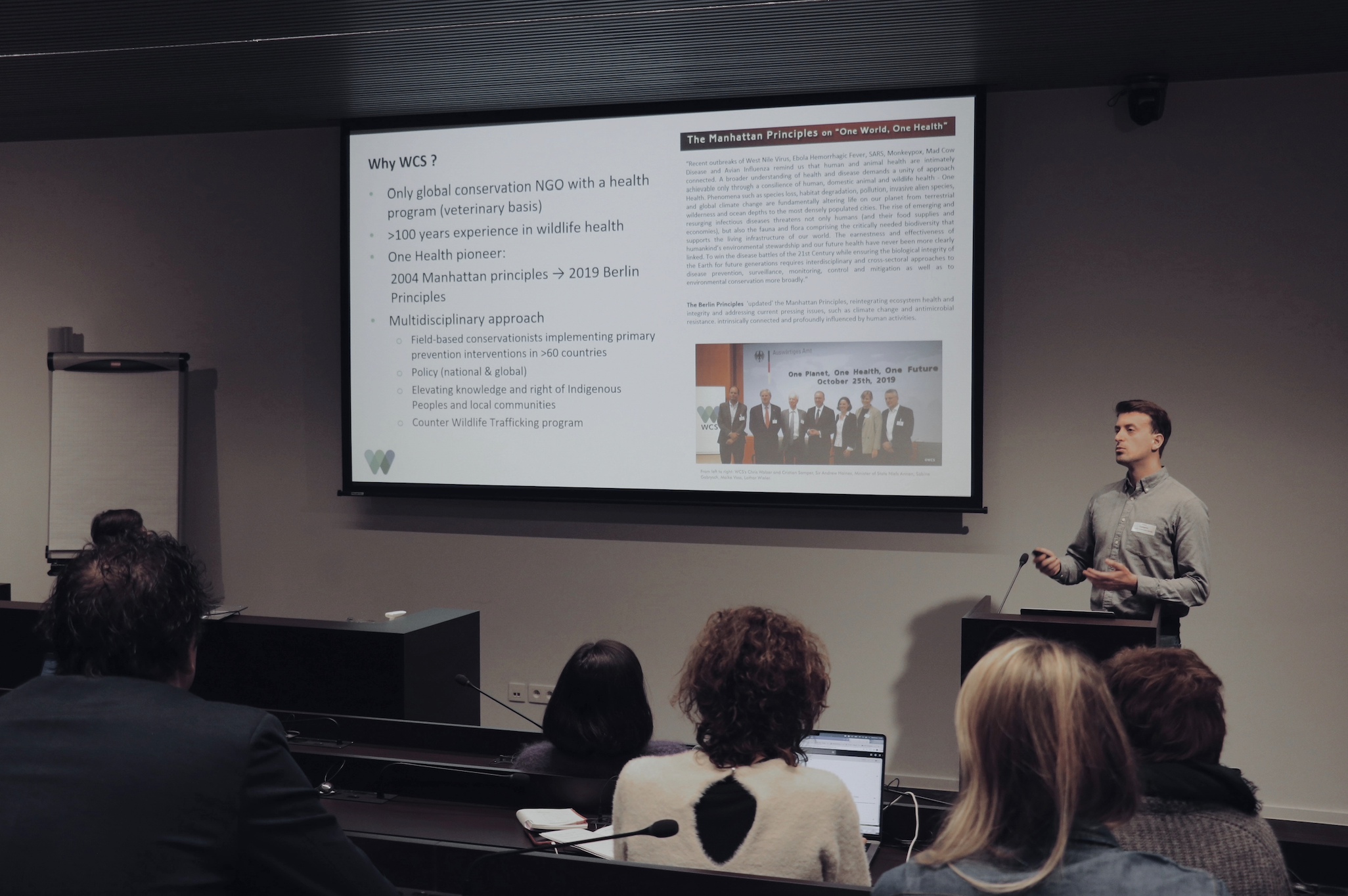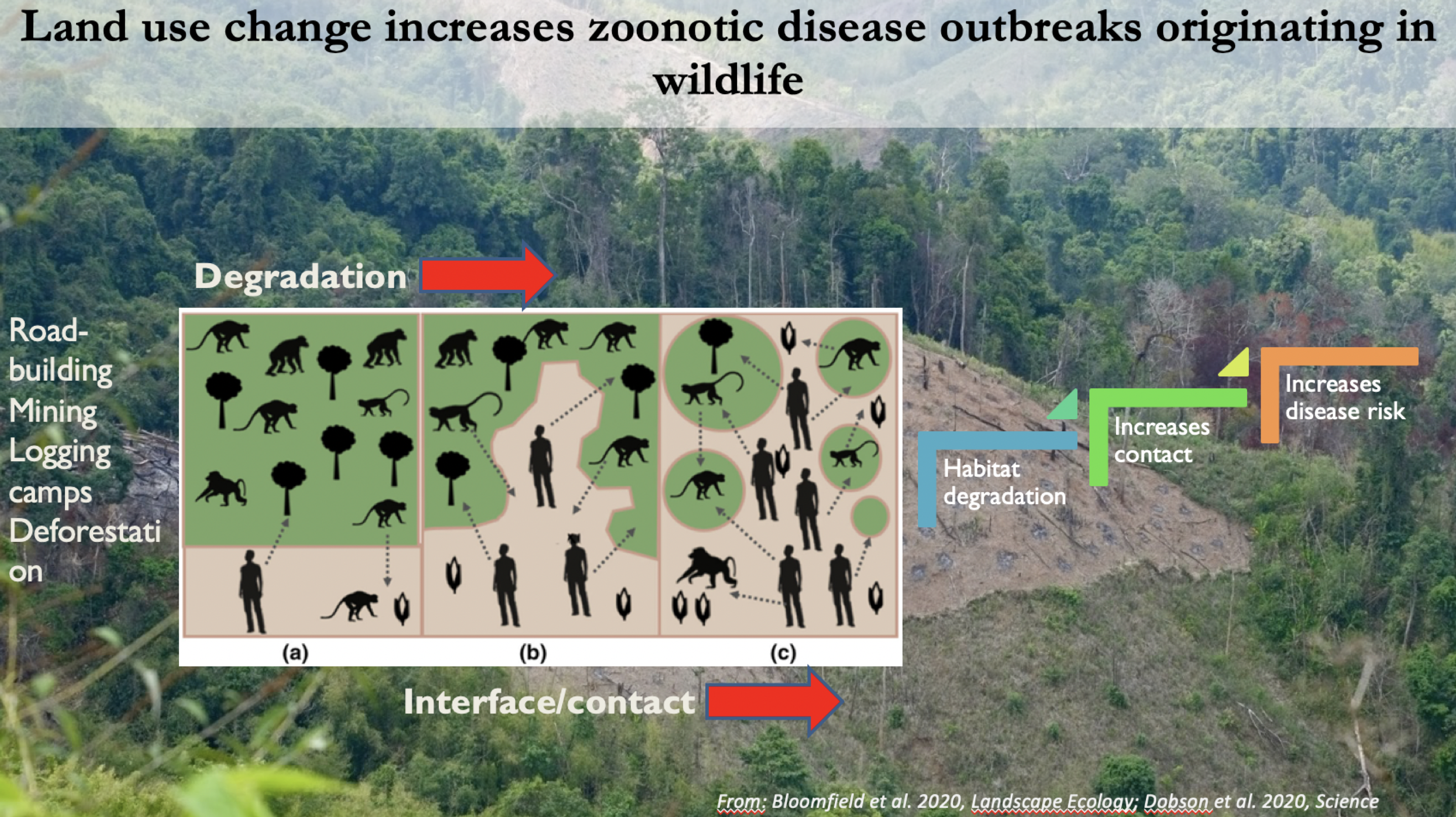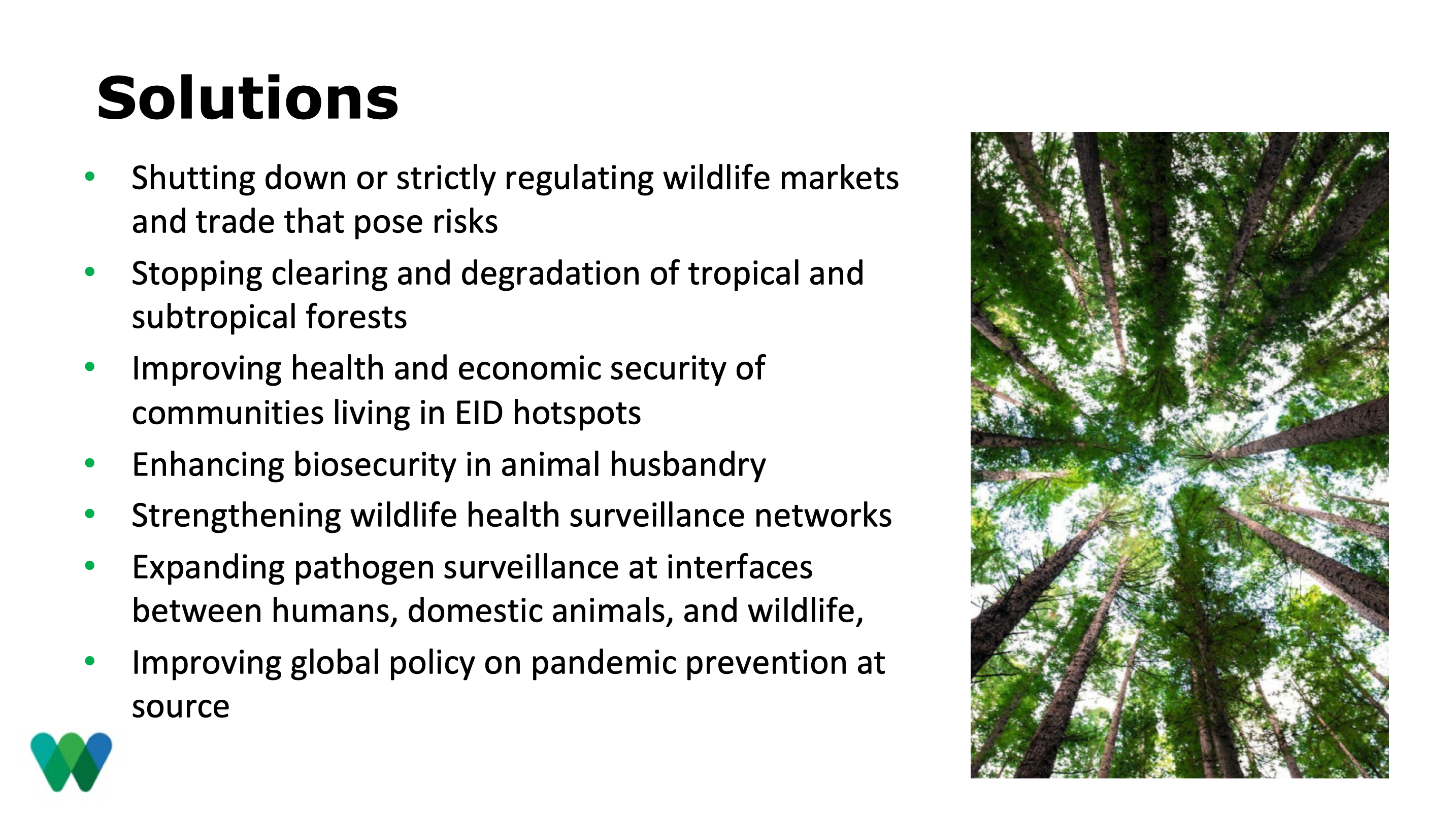
Belgian One Health Vision
The Belgian PREZODE Expert Group with support from the Belgian Biodiversity Platform , FPS Health, Food Chain Safety and Environment and Sciensano held a workshop on 8th March 2023 to discuss the development of a national 'One World One Health Vision' for Belgium, with a focus on the emergence of diseases of zoonotic origin.
Belgian experts from across sectors including biodiversity, human health, veterinary science, climate change, science policy, and scientific research, attended the workshop and contributed to the discussions towards a One Health vision for Belgium.
The morning of the workshop consisted of an information session which introduced the PREZODE initiative and its strategic agenda, provided an overview of current negotiations for a WHO Pandemic Instrument at international level, set the scene for One Health scientific research in Belgium, discussed the emergence of diseases of zoonotic origin and how to tackle it, and finally get information from the Netherlands on their action plan for the Strengthening of the Zoonotic Disease Policy.
During the afternoon session, participants took part in breakout sessions addressing questions with the aim to produce recommendations on what is needed for a One World One Health vision for Belgium.
More information on the programme is available at www.biodiversity.be/5856
 Arnaud Goessens, WCS EU Office, presenting at the Belgian PREZODE workshop
Arnaud Goessens, WCS EU Office, presenting at the Belgian PREZODE workshop
During the morning session, Arnaud Goessens, Associate Director for EU Policy, WCS EU Office, presented examples from the field on the environmental sector and zoonotic disease risk reduction.
WCS has been a pioneer in promoting wildlife health as critical to saving wildlife and wild places. In 2004, WCS convened the first “One World, One Health” symposium in New York City, which was attended by health experts from around the world. The Manhattan Principles on “One World, One Health” were formalised and called for the recognition of “the essential link between human, domestic animal and wildlife health and the threat disease poses to people, their food supplies and economies, and the biodiversity essential to maintaining the healthy environments and functioning ecosystems we all require.”
In October 2019, WCS and the German Federal Foreign Office (FFO) co-hosted a “One Planet, One Health, One Future” conference in Berlin, as a follow-up to the Manhattan Symposium, which brought together members of academia, government, policy, and civil society from nearly 50 countries. The Berlin Principles on One Health were forged, updating the 2004 Manhattan Principles, which alerted of the potential devastating impacts of future pandemics of zoonotic origin.
WCS is currently implementing several integrated One Health initiatives, related to the emergence of diseases of zoonotic origin, across the globe:
- Operationalising Wildlife Health Surveillance in Southeast Asia - click here
- Wildlife Mortality Monitoring Network in the Republic of Congo - click here
- A One Health Approach to Wildlife Trade and Policy in Viet Nam - click here
WCS also developed the WildHealthNet tool, which facilitates growing national wildlife health surveillance systems. The tool can create actionable intelligence for the environment-health nexus with existing public health and conservation networks, and bridges and builds capacity across national and regional administrations. The WildHealthNet enhances detection and mitigation through four key elements: building networks with existing government structures, providing targeted trainings, implementing novel technologies, and a response guided by data analysis.

The science is clear that pandemics of zoonotic origin, such as COVID-19, are directly related to the increased human/wildlife interface caused by land-use change, in particular deforestation and forest degradation; and the role of urban markets in live wild birds and mammals and wildlife farm. Recent studies show that the single most effective and cost-effective way to prevent pandemics is to avoid pathogen spillover to humans, wildlife, and other animals in the first place, referred to as pandemic prevention at source.

READ MORE
WCS and One Health
Pandemic prevention at source
Links between Ecological Integrity and Human Health
Best Practices to Confront Pandemics at the Source
WCS Recommendations to Reduce Pandemic Risk